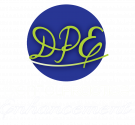As if dental billing and insurance weren’t complicated enough, administrators also have to think about medical billing. Certain procedures, typically those related to emergency care or overall health, should be billed to a patient’s medical insurance, rather than to their dental insurance. Knowing when and how to file these claims is key, as it reduces the risk of claims rejections and dissatisfied patients.
At Dental Practice Enhancement, we understand the subtle nuances of dental billing and medical billing, and we are ready to pass our expertise on to you. We offer a variety of training options to improve your office’s efficiency. Or you might avail yourself of our remote dental billing services, allowing us to handle this complex and nuanced process ourselves.
Whatever your needs, we are here to take your practice to the next level. Contact Dental Practice Enhancement today to get started.
When to File a Medical Claim
As a general rule, medical insurance will cover treatments that are related to overall physical health. One of the most common reasons a dental office will file a medical claim is for oral trauma related to an accident. In these cases, even dental restorations are usually covered by medical insurance.
Other situations in which to use medical instead of dental billing could include:
- Oral appliances for TMJ disorder or sleep apnea
- Diagnostic tests for oral cancer
- Treatment related to oral cancer
- Biopsies
- Frenectomies for newborns with difficulty feeding
- Diagnostic tests for oral infection
- Correction of oral birth defects
When You’re Just Not Sure
If you are uncertain, you should ask the patient’s insurance company where to send the claim. Be aware, however, that medical insurance has a much shorter submission period than dental insurance. If you suspect medical insurance is involved, it is all the more important to be proactive with these claims.
Key Differences Between Dental Billing and Medical Billing
The main difference between a dental billing submission and a medical claim is the coding. Dental claims should include the CDT code, while medical claims will need the appropriate CPT code.
Medical claims will also need some different information, including:
- ICD-10-CM diagnosis code
- Diagnosis pointer
- Place where the service was performed
- Modifiers
Fortunately, the submission process is quite similar, since both forms can be filed electronically. For medical claims, you should use the CMS 1500 (02-12) form.
Dental vs. Medical Reimbursement
Both you and your patients should be aware that medical insurance usually takes longer to issue reimbursements than dental plans. Moreover, medical insurance usually has a higher deductible. That being said, medical insurance also does not have an annual maximum, as dental insurance does.
Need help with your medical and dental billing?
Knowing when and how to file two different types of claims can be overwhelming for an administrator. That’s why we are proud to provide training tailored to your practice and your team’s needs. We can also take care of your billing remotely, allowing your team to focus on providing great patient care.
Contact Us Today
To learn more about our training or administrative services, contact Dental Practice Enhancement today.
Send us a message online or call us at (833) DPE – FOR – U.





